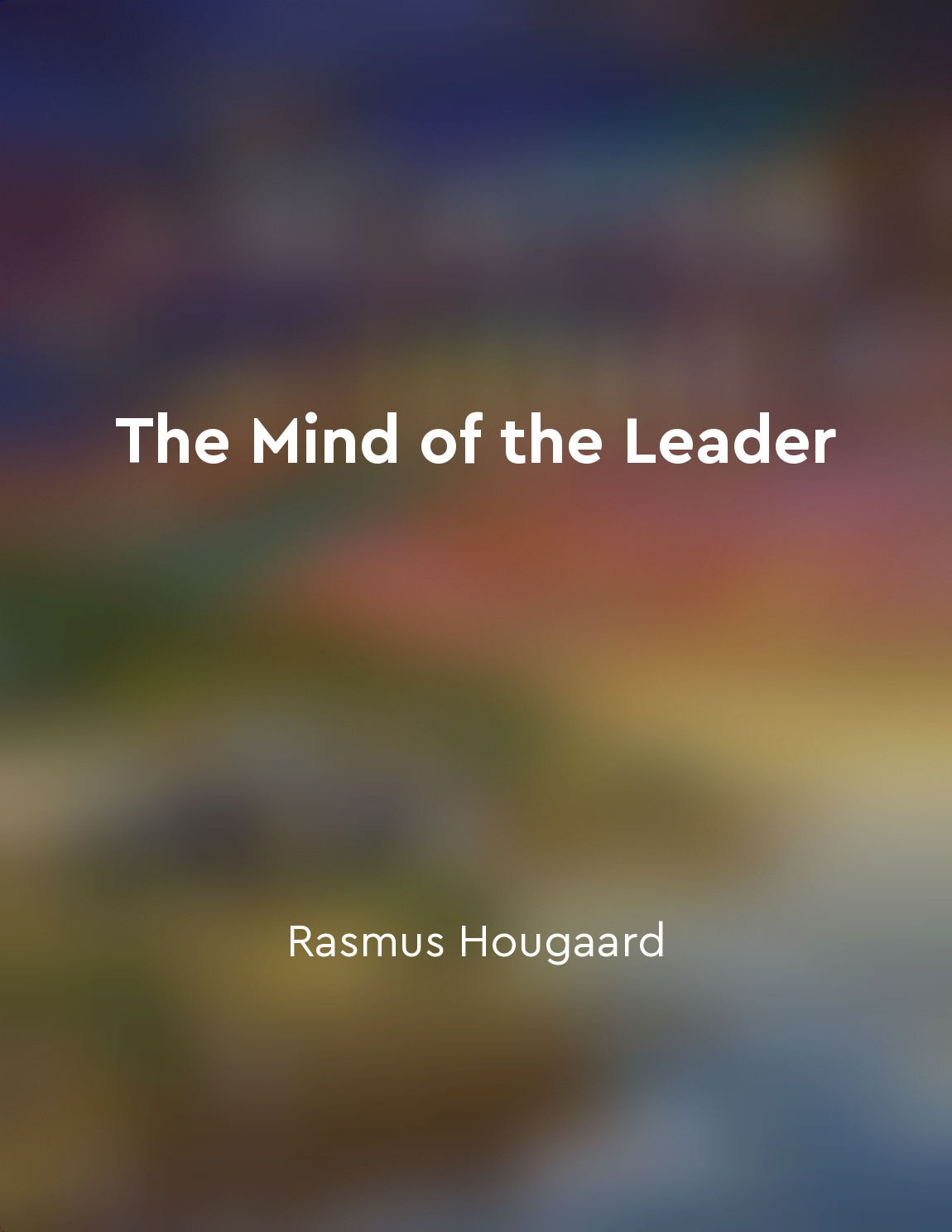Audio available in app
Developing a leadership mindset rooted in mindfulness and selfawareness from "summary" of The Mind of the Leader by Rasmus Hougaard,Jacqueline Carter
Leaders who possess a leadership mindset rooted in mindfulness and self-awareness are able to navigate the complexities of the modern business world with more ease and effectiveness. This mindset allows them to be fully present in each moment, making thoughtful decisions based on a deep understanding of themselves and their environment. By cultivating mindfulness, leaders can develop a greater sense of awareness of their thoughts, emotions, and behaviors, enabling them to respond to challenges with composure and clarity. Self-awareness, on the other hand, involves recognizing one's strengths, weaknesses, and blind spots, which is essential for personal growth and development as a leader. When leaders are mindful, they are better able to connect with others on a deeper level, fostering trust and collaboration within their teams. This connection is rooted in empathy and compassion, qualities that are essential for building strong relationships and creating a positive work culture. By taking the time to listen actively and show genuine interest in their team members, mindful leaders can inspire loyalty and engagement, leading to higher levels of employee satisfaction and productivity. In addition to enhancing interpersonal relationships, mindfulness and self-awareness also contribute to improved decision-making and problem-solving skills. Leaders who are able to approach challenges with a calm and focused mind are more likely to make sound judgments and find creative solutions to complex problems. By being aware of their own biases and limitations, mindful leaders can make decisions that are in the best interest of their teams and organizations, rather than acting impulsively or out of ego.- Developing a leadership mindset rooted in mindfulness and self-awareness requires a commitment to personal growth and continuous learning. By practicing mindfulness techniques such as meditation and mindfulness exercises, leaders can cultivate the self-awareness and emotional intelligence necessary to lead with authenticity and effectiveness. This mindset not only benefits the individual leader but also has a ripple effect throughout the organization, creating a culture of mindfulness, empathy, and innovation.
Similar Posts
Vulnerability fosters connection and collaboration
When we talk about vulnerability fostering connection and collaboration, we're really talking about the willingness to show up ...
Transactional leaders use rewards and punishments to motivate followers
Transactional leaders are known for their reliance on a system of rewards and punishments to motivate their followers. This lea...
Collaborating with others is essential for driving successful change
Driving successful change requires a leader to recognize the importance of collaborating with others. Change cannot be achieved...
Mindfulness allows individuals to respond thoughtfully rather than react impulsively
When individuals practice mindfulness, they are able to cultivate an awareness of their thoughts, emotions, and reactions in th...

Embrace kindness as a guiding principle
Kindness is a powerful force that can transform our relationships, our communities, and even ourselves. When we embrace kindnes...
Companies are embracing mindfulness programs to support employee mental health
In workplaces around the world, a new trend is emerging - the integration of mindfulness programs to improve employee mental he...

Leveraging the power of collaboration and teamwork in leadership
Collaboration and teamwork are essential components of effective leadership. Leaders who understand the power of working togeth...
Building a strong team is crucial for leadership success
Developing a strong team is an essential element for any leader aspiring to achieve success. A leader cannot achieve greatness ...
Employees who practice mindfulness experience less stress
In today's fast-paced work environment, stress is a common experience for many employees. The constant pressure to meet deadlin...

